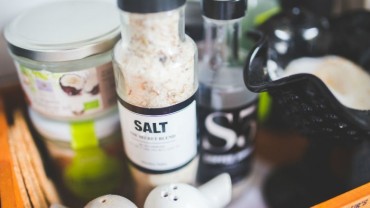Constipation Symptoms, Causes, Treatments and Relief Strategies
What is Constipation
Most of us, from time to time, have had trouble with constipation.
It’s not a topic we typically want to discuss, but when you are having trouble in the bathroom, you want relief fast.
Constipation can make you uncomfortable and even cause other symptoms, so learning the causes and natural ways to treat this digestive issue is important for many.
Our guide will help you understand how to prevent constipation, what to do if you are constipated, and the best natural remedies that you can use at home to relieve your constipation problems.
Millions of people in the US suffer from occasional constipation, with estimates indicating that one in five people suffer from it regularly.
While many people do not seek medical attention for their constipation, our society is clearly dealing with bathroom issues when we are spending hundreds of millions of dollars each year on laxatives, a common over-the-counter remedy for constipation (1).
There are several triggers in your lifestyle that can cause occasional constipation, including traveling and stress.
But when your life is being affected by your difficulties in the bathroom, it may be time to consider long-term solutions to your pooping problems.
Constipation can cause other symptoms that impact your life, so handling your bathroom problem can also alleviate lower back pain, fatigue, and bloating.
Because constipation is preventable and easily treated, it is good to know the natural ways you can ensure your bowel movements are regular.
Keep reading to learn all about the ways to prevent regular constipation, as well as the best natural remedies you can use at home to treat your constipation.
Understanding Constipation
If you are having difficulty moving your bowels or emptying them, you have constipation.
Most doctors consider fewer than three bowel movements in a week to be constipation.
If you have dry, hard, or small bowel movements that are difficult to pass or cause pain, you have constipation (2).
Everyone is different, though, and what may be typical for someone else is not necessarily normal for you.
If you notice that your bowel movements are not occurring as frequently as usual, or you are having trouble emptying your bowels comfortably, you are experiencing constipation.
Everyone is different, though, and what may be typical for someone else is not necessarily normal for you.
If you notice that your bowel movements are not occurring as frequently as usual, or you are having trouble emptying your bowels comfortably, you are experiencing constipation.
Nearly 20 percent of Americans suffer from chronic constipation or frequent episodes of being constipated.
Constipation can be caused by medical issues, so paying attention to your bowel movements can alert you to something that is wrong in your gastrointestinal tract or with your hormonal regulation.
Women are more likely than men to be constipated, with some estimates indicating the rate is as much as three times as frequent (3).
As you age, you are also more likely to become constipated, with the rates of constipation rising after the age of 50.
Other risk factors that increase your chances of having frequent or chronic constipation include living in a rural area, being at a lower socioeconomic level, living in colder regions, and having less education (4).
The Causes of Constipation
Understanding what causes constipation will help you avoid developing this preventable problem.
Many lifestyle factors affect your bowel movements, especially your diet, activity level, and stress.
There is a high probability that what you are eating and drinking is contributing significantly to your problems with constipation.
Learning what to eat and drink, as well as how to handle stress, will be beneficial for preventing constipation symptoms.
Constipation can be caused by irregularities in the functioning of your gastrointestinal tract.
This can result in either stool passing too slowly through your system, and/or a delayed emptying of your colon.
When either of these happens, stool can grow hard and dry, can become particularly compact, or can become blocked from passing.
Medical conditions, such as IBS and Parkinson’s disease, can also cause constipation.
If you have any type of functional digestive disorder, hormone irregularities, or other medical issues that affect your digestive or endocrine systems, you may suffer from frequent or chronic constipation.
Other risk factors that can contribute to your constipation include the following factors (5).
Eating a poor diet low in fiber and high in unhealthy fats, alcohol, sugar, and refined carbohydrates can cause constipation.
Your body requires fiber for proper digestion, and highly-processed diets generally lack the fiber necessary for effective bowel movements.
Exercise increases blood flow, controls stress, and strengthens the muscles that control digestion.
When you do not get enough exercise, your muscles become weak, your system does not move efficiently, and your digestion is slowed.
Too much stress creates hormonal imbalances and impacts the production of neurotransmitters.
This affects levels of inflammation, muscle tension, production of enzymes, and other important metabolic functions.
Some medications are known to increase your risk of constipation, including narcotics, anti-seizure medications, supplements like iron and calcium, antidepressants, antacids, and diuretics.
If you take any of these types of drugs, it is important you pay attention to your diet, activity, and lifestyle to avoid constipation.
Imbalances in your thyroid or other hormone-producing glands can cause constipation.
Women are more likely to suffer from constipation due to fluctuations in hormone levels caused by menstruation, menopause, and PMS.
Medical conditions such as diabetes, spinal injuries, eating disorders, and neurological problems can all affect digestion and lead to constipation.
If you require an x-ray or imaging of your upper gastrointestinal tract, you may be asked to drink barium, which enhances the image.
Barium can cause constipation after this type of test, so be sure to eat plenty of fiber and drink lots of water after any procedure using it (6).
When your natural microflora of the gut is imbalanced, you can become constipated.
Probiotics are the healthy bacteria in your gastrointestinal tract which promote digestion and regulate your bowel functions.
These microflorae need fiber to thrive, and when your diet lacks sufficient fiber, they are unable to function correctly.
If you are deficient in certain minerals or vitamins, like magnesium, you may become constipated.
Magnesium contributes to muscle function.
Since digestion is dependent on the proper functioning of the muscles in your system, a magnesium deficiency could play a role in constipation.
Poor bathroom habits could also be playing a role in your constipation.
If you do not allow yourself enough time for a bowel movement, if you are uncomfortable sitting on the toilet, or if you sit for too long, you can alter your ability to move your bowels properly.
If you do not get enough sleep, are traveling, or have jet lag, you may experience constipation.
This is usually temporary and is alleviated with sleep and proper nutrition.
As you age, you may lose interest in cooking or eating.
This happens for a variety of reasons, including changes to your taste buds, lack of energy for preparing food, and trouble with teeth or dentures that results in difficulty eating.
Many older adults do not get enough fiber in their diets, which leads to constipation (7).
Symptoms of Constipation
Less-frequent bowel movements are the number one symptom of constipation.
When you notice you are not going as much as you normally do, you are likely constipated.
There is no magic number for how many times a day or week you should be moving your bowels, and each person is different.
Pay attention to your regular habits, and if you notice that things are a little off in the bathroom, it is time to address your constipation.
If your stool is painful or difficult to pass, if you are straining to relieve yourself, or if you have pains in your abdomen, you are constipated.
Bloating and excessive gas often accompany constipation, as well.
Constipation Relief Remedies
From what you do and don’t eat and drink, to other lifestyle choices, there are many things you can do to keep your system moving regularly as well as deal with the occasional episode of irregularity.
The goal is to improve your overall digestive health and increase your fitness so that you can prevent problems with constipation from even occurring.
Here are our favorite natural remedies for preventing and relieving constipation on your own.
Best Foods to Eat
Many foods will help relieve temporary or occasional constipation.
Most effective among these are foods high in soluble fiber.
Raw vegetables and fruits, nuts, seeds, beans, and ancient grains should make up a significant part of your daily diet.
Men need as much as 38 grams of fiber per day, and women as much as 21 grams.
Eating sweet potatoes, apples, avocados, flax seeds, broccoli, whole grains, greens, and squash are all excellent ways to get the fiber your digestive system needs to be healthy (8).
Leafy greens, like spinach, kale, chard, and collards, are also excellent sources of both fiber and magnesium, which can help prevent constipation.
Greens contain lots of water, which you need as well, and are low in calories, so making them a regular part of your diet will help you maintain a healthy weight, too.
Warm liquids tend to stimulate digestion, and drinking these first thing in the morning is a great way to get yours going each day.
Cold drinks can halt or hamper digestion, so save these for later in the day, once your system is already active.
We all know prunes are a great natural laxative, and so are figs.
These tasty snacks have lots of fiber, and eating a few can help relieve occasional constipation.
Dried fruits are high in sugar and calories, though, so be sure to consume them in moderation.
Be sure you are staying hydrated, both to prevent constipation and to alleviate it after it has happened.
An increase in fiber intake means you also need more water, as fiber requires liquid to work appropriately during digestion.
Drinking plenty of water will prevent dehydration as well as constipation, and give your body the fluid it needs to move your system efficiently.
Foods to Avoid
Some foods can make your constipation worse or cause constipation, to begin with, so avoiding these will be important if you have other risk factors or have chronic or frequent constipation.
Fried foods are usually very high in trans-fats, which can interfere with proper digestion.
Trans-fats and other high-fat foods provide little or no fiber and can bind stools together, making them hard to pass (9).
Eating foods with lots of calories but not a lot of fiber or nutrients can also cause constipation.
Anything that is highly processed has lots of calories, or is prepackaged is likely to raise your risk of becoming constipated.
Fast food, processed meats, frozen foods, and sweetened treats are high on the list of culprits for causing constipation (10).
You may be lactose intolerant or sensitive to dairy, which may be causing problems with constipation.
Avoid conventional or pasteurized dairy if you have frequent problems with constipation.
Alcohol is a diuretic which increases fluid loss; this can make your constipation worse.
Drink alcohol in moderation, and be sure to drink plenty of water for every drink you consume.
Caffeine also has diuretic properties, so drinking caffeinated beverages in moderation will ensure you aren’t losing too much fluid.
Natural Supplements
Eating sprouted flax or chia seeds can add healthy fats and plenty of fiber to your digestive system.
Consuming flaxseed oil daily can also help keep your gastrointestinal tract lubricated, making bowel movements easier.
A natural and popular laxative is psyllium husk, which is found in many fiber supplements.
Because they are high in fiber and you take them with water, these two ingredients can aid digestion and make it easier to form and pass stool in your colon.
Pectin is a type of fiber found in apples, pears, and lemons.
Eating an apple a day, or taking one to two teaspoons of apple pectin fiber each day, will help you remain regular.
Remember that magnesium is important to your overall health, so taking a magnesium supplement is a good idea if you are not eating foods rich in this essential nutrient.
Magnesium will help keep your gastrointestinal muscles moving properly, which will aid your digestion.
Cod liver oil is another helpful supplement for constipation.
Take one tablespoon with a glass of water or fresh carrot juice to help alleviate constipation.
Taking a natural laxative like Senna can help when you are constipated.
Senna and other sennosides stimulate your digestive tract and can help you have a bowel movement (12).
Senna is available in many forms, including tea. Each form will have its own dosing instructions, so read packages carefully.
Make sure you are eating and drinking probiotics, or consider a probiotic supplement.
Look for supplements and foods with active, live cultures of microflora like acidophilus to help you maintain your balance.
Fermented foods and beverages are also high in probiotics.
And aloe vera juice can help with digestion and bowel movements.
Aloe reduces inflammation, which can help ease problems contributing to constipation.
Epsom salt can also help with constipation.
Drink two teaspoons dissolved in water or juice to soften stool and contract your bowels naturally.
Other Natural Remedies
Getting enough exercise is crucial for regular digestion and health.
When you are active, your intestinal muscles stay active, as well, which promotes proper movement of food and waste through your system.
Exercising first thing in the morning is another great way to jump-start your digestive system, plus it lowers your stress and puts you in a positive mood for the rest of your day.
Examples of effective exercises you should do every day include walking, swimming, biking, stretching, yoga, and dancing.
Controlling your stress will also help you avoid constipation.
Stress affects your hormones, contracts your muscles, raises your blood sugar, affects your sleep, impacts the flora in your gut, and alters your appetite.
In short, stress’ influence on your body is significant.
Finding ways to eliminate substantial sources of stress from your life will be an essential step toward maintaining bowel regularity.
Finding ways to cope and manage the stress you cannot remove will also be vital.
Each of us deals with stress differently, but some useful stress reduction techniques include yoga, meditation, walking, spending time outdoors, writing in a journal, getting a massage, or taking a hot bath.
Find what works for you, and get that stress under control.
Getting more sleep will also help if you have chronic or frequent constipation.
Those with sleep disorders and other sleep problems are much more likely to suffer from constipation, and increasing regular sleep has been shown to help (13).
Be sure you turn off electronics at least one hour before bed, make your bedroom a sanctuary to rest, and devote enough hours to getting plenty of it.
Making sure you are protecting your sleep and getting enough of it will have many positive effects on your health, including helping keep your digestion regular.
Baking soda mixed with warm water can help alleviate some of the gas symptoms that often accompany constipation.
Mix one teaspoon of baking soda in a glass of warm water, and drink it quickly for best results.
Biofeedback involves learning from a therapist to control your muscle contraction and relaxation in various parts of your body.
Biofeedback can help you relax when you are tense, and learning to relax certain muscles, like those in your pelvic region, can help your bathroom processes.
The process of learning biofeedback techniques can be a little intense, but if you have a medical condition that causes chronic constipation, this technique could be helpful in creating less stress around moving your bowels regularly.
Improving your bathroom habits can also help you pass stool more easily and completely.
Many people stifle the urge to move their bowels when they feel conditions are less than ideal.
If you resist the urge to poop when you need to, you can actually stop feeling that urge, which can lead to problems.
When you have to go, don’t wait until you get home or until the conditions are better.
Resisting the urge can lead to problems with constipation in the future.
Conventional Treatments
Fiber supplements and laxatives are the most common, conventional treatments for constipation.
If your problem is more serious or chronic, your doctor could prescribe medicines to control bowel movements or regulate digestion.
These are generally only used in severe cases with a long history of constipation.
The use of laxatives for constipation should be infrequent and temporary, though. Laxatives work using one of several main principles.
- Bulk-forming laxatives are fiber supplements. They increase the bulk in your stool by increasing their liquid volume. This encourages your bowels to move them out. Bulk-forming laxatives are generally the best type of laxative to take first if you are having issues with constipation. You usually get relief within 12 to 24 hours.
- Stool-softening laxatives make the stool softer by decreasing the surface tension, which allows them to absorb more water. This makes them easier to pass. Relief usually comes within 12 to 72 hours.
- Stimulant laxatives stimulate the muscles of the gastrointestinal tract, which speeds up bowel movements. Constipation relief is usually 6 to 12 hours away.
- Osmotic laxatives promote the secretion of water into the bowels, which softens stool and makes it easier to pass. These work the slowest, and generally, take two to three days to work.
While used less frequently, other laxative properties can also be helpful in reducing the symptoms of constipation.
Lubrication of the intestines can be helpful, and saline laxatives like enemas are very effective at emptying the bowel completely.
All laxatives can have side effects.
The most common are bloating, nausea, and discomfort.
Other, more adverse side effects of laxatives include excess gas and dehydration, which can cause headaches and dizziness.
If you take laxatives in excess or for prolonged periods, you can develop serious side effects such as intestinal obstruction or severe diarrhea.
Long-term laxative use causes an imbalance of many minerals within your body, which can adversely affect other systems, as well.
Laxative abuse can cause the muscles in your gastrointestinal tract to weaken permanently, making normal bowel movements very difficult.
Avoid taking laxatives more or for longer than absolutely necessary, and consider changes to lifestyle and diet to manage your constipation instead.
Natural laxatives, like those listed above, provide your body with what it needs to be healthy without the negative side effects of medical laxatives and other drugs.
Can Constipation be a Sign of Something Larger?
Being occasionally irregular is not uncommon, so it is not always necessary to call your doctor if you are constipated.
However, constipation can be a sign of a larger medical issue, so knowing when to call your doctor can be helpful.
Talk to your physician if you are constipated and you also experience any of the following:
- Symptoms linger for more than three weeks.
- You experience sharp or intense pain in your stomach or abdominal area when you poop.
- Your symptoms are so severe that you are unable to cope.
- Your stools are consistently thin.
- Your stools are black or tarry.
- If you see blood in your stool.
- You have rectal bleeding that recurs often.
- You are anemic.
- You have unexplained weight loss, along with any of these symptoms.
Precautions
Remember, don’t ignore severe or lingering symptoms, as they can be a sign of problems.
Fecal impaction of the colon from constipation can do serious damage.
Hemorrhoids are a common side effect of chronic constipation from straining to evacuate your bowels.
If you have severe constipation or constipation that lasts longer than three weeks, be sure to seek medical attention.
If your constipation alternates with diarrhea, you may have a food sensitivity or allergy, or you may be having a reaction to a medication.
Watch out for other allergy-related symptoms like skin rashes, fatigue, aches, feeling confused, or abdominal swelling.
In most cases, constipation is preventable, and when it does occur, you can generally take care of it on your own at home.
Trying a high-fiber diet, using fiber supplements, or taking a gentle laxative is often enough to get things moving again.
Constipation is moving your bowels less frequently than normal or having painful or hard movements.
Gas, bloating, and lower back pain are common symptoms of constipation, as well.
If you have constipation, it is likely due to a poor diet without enough fiber, hormonal imbalances, dehydration, stress, or not getting enough exercise.
Medications, medical conditions, and age can also contribute to constipation symptoms.
Eating plenty of fiber and drinking lots of water are great ways to prevent and treat constipation.
Other natural remedies including eating prunes or figs, getting plenty of exercises, reducing your stress, avoiding foods likely to cause constipation, getting plenty of sleep, using natural herbs and supplements, and trying biofeedback.
Dealing with occasional constipation can be inconvenient or annoying, but is not a major problem.
Staying healthy, eating a high-fiber, nutrient-dense diet, and being active will help you maintain your overall health, as well as promote proper digestion and evacuation.
FDA Compliance
The information on this website has not been evaluated by the Food & Drug Administration or any other medical body. We do not aim to diagnose, treat, cure or prevent any illness or disease. Information is shared for educational purposes only. You must consult your doctor before acting on any content on this website, especially if you are pregnant, nursing, taking medication, or have a medical condition.
HOW WOULD YOU RATE THIS ARTICLE?






